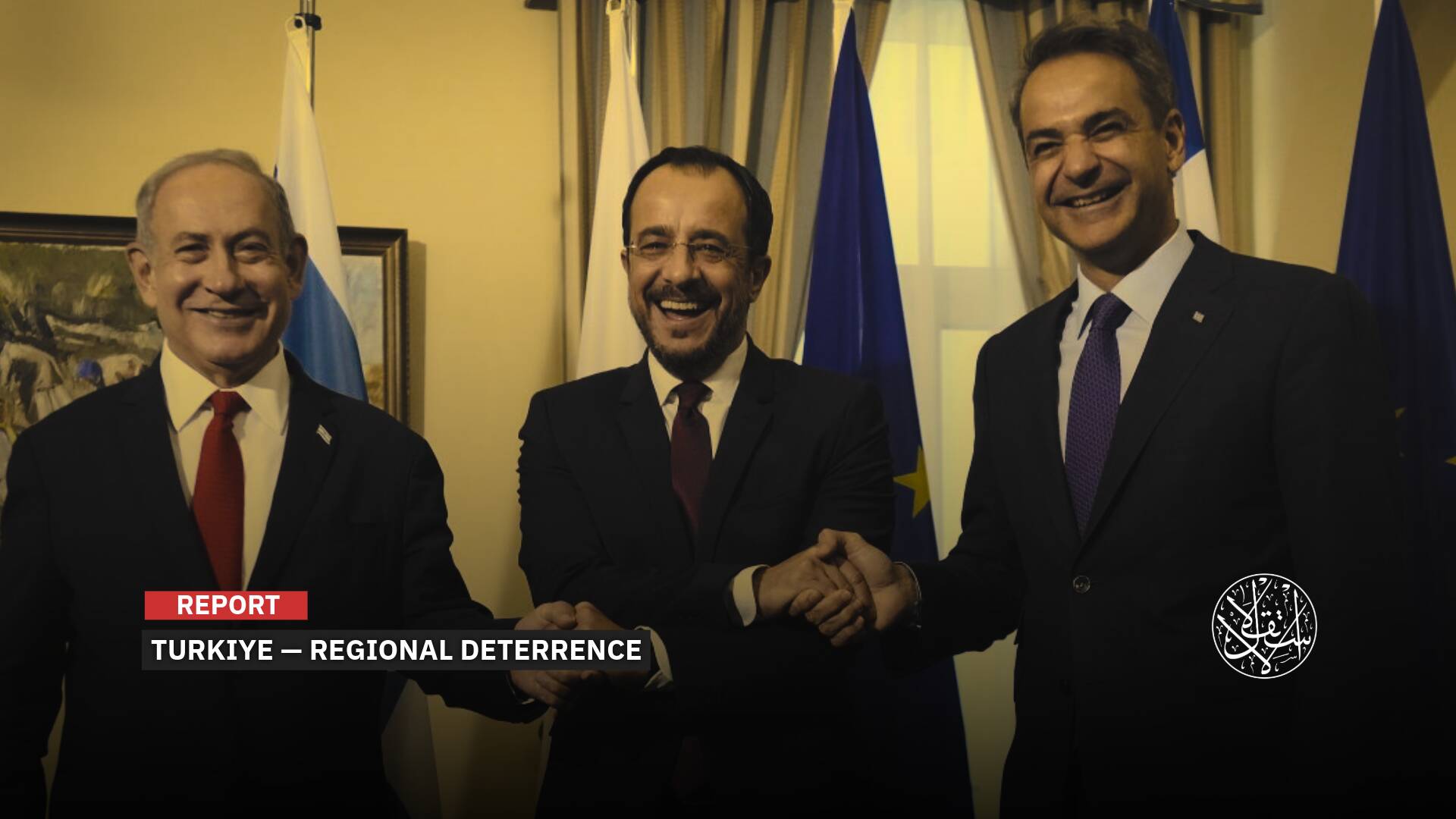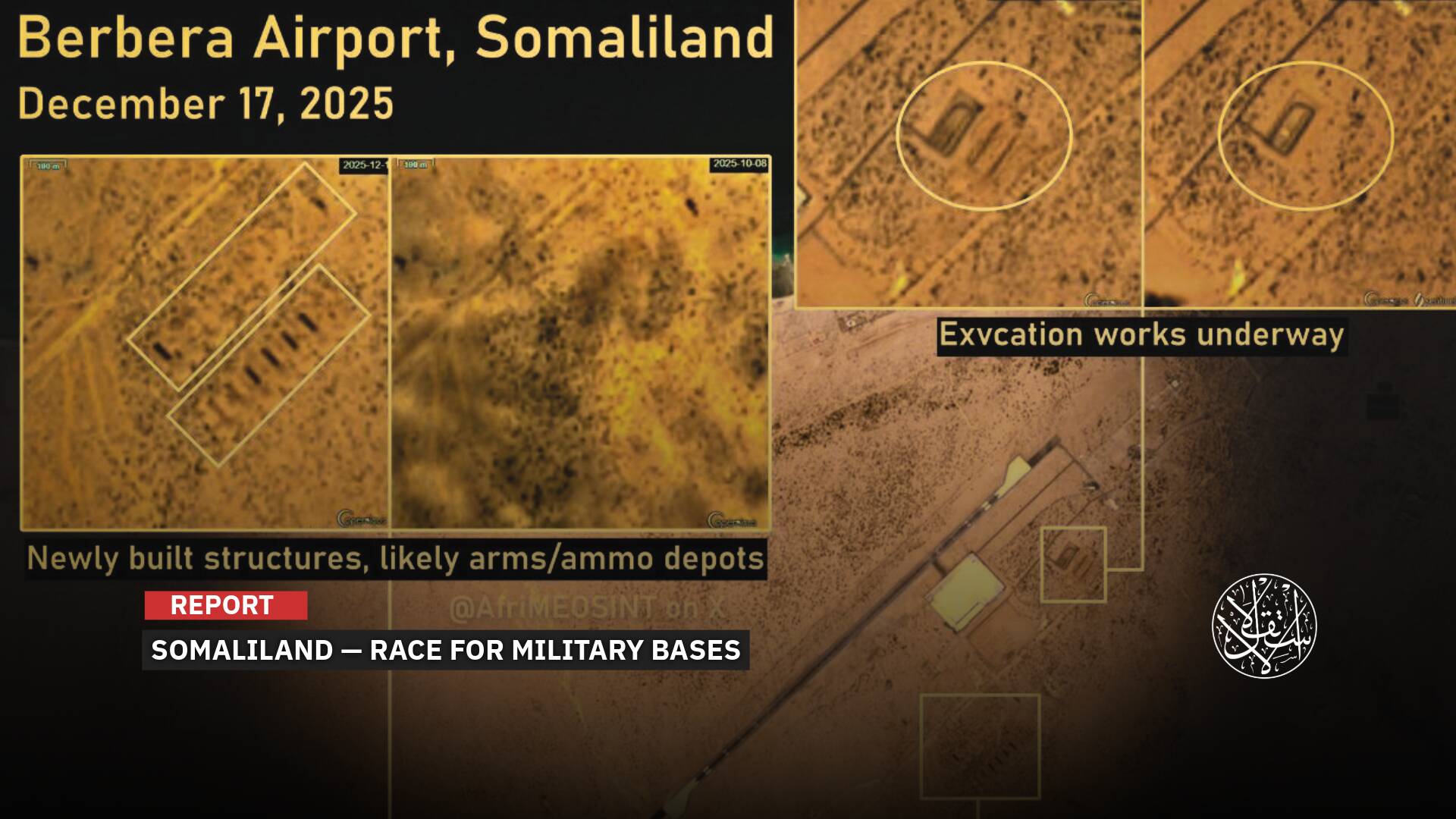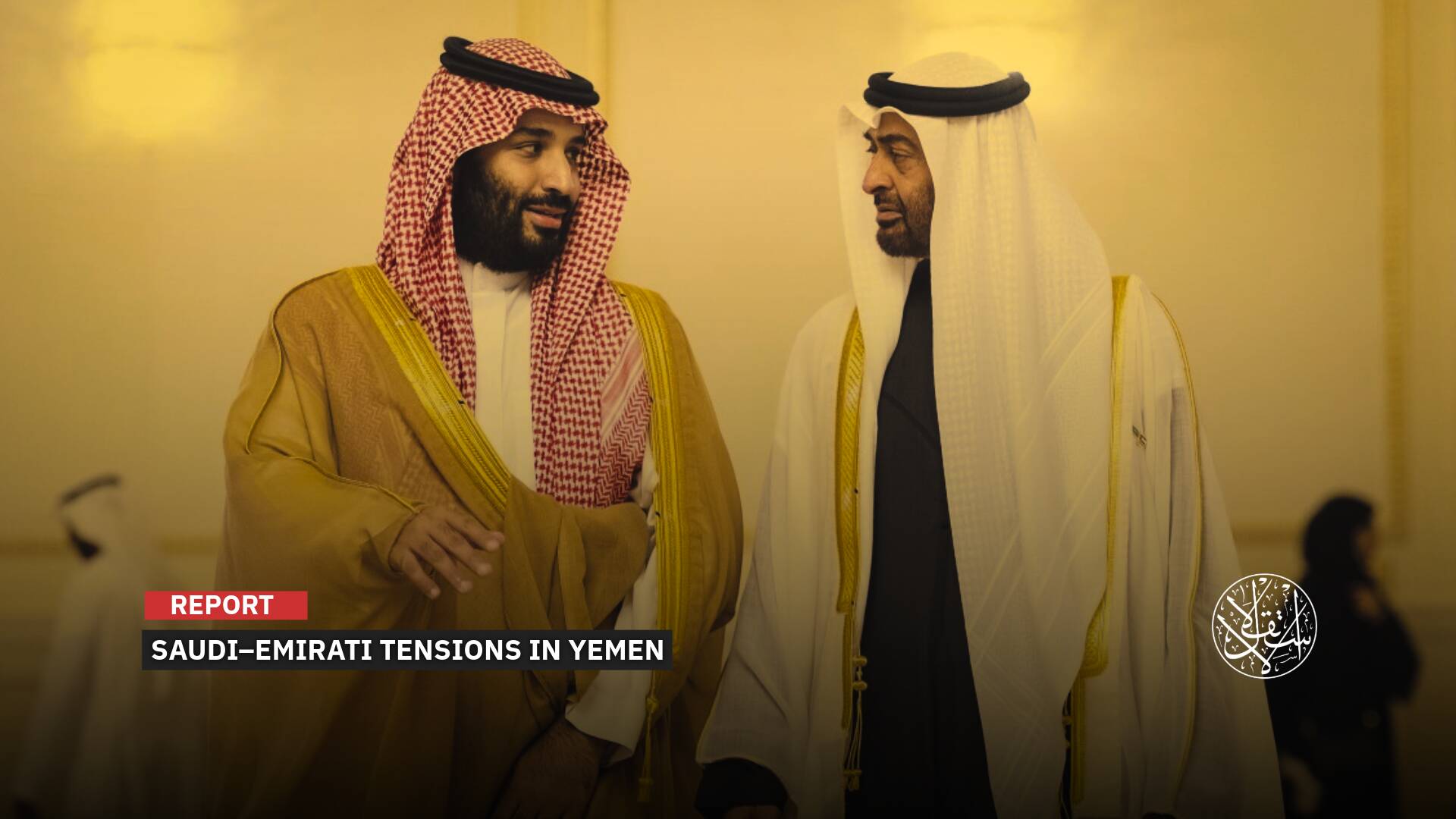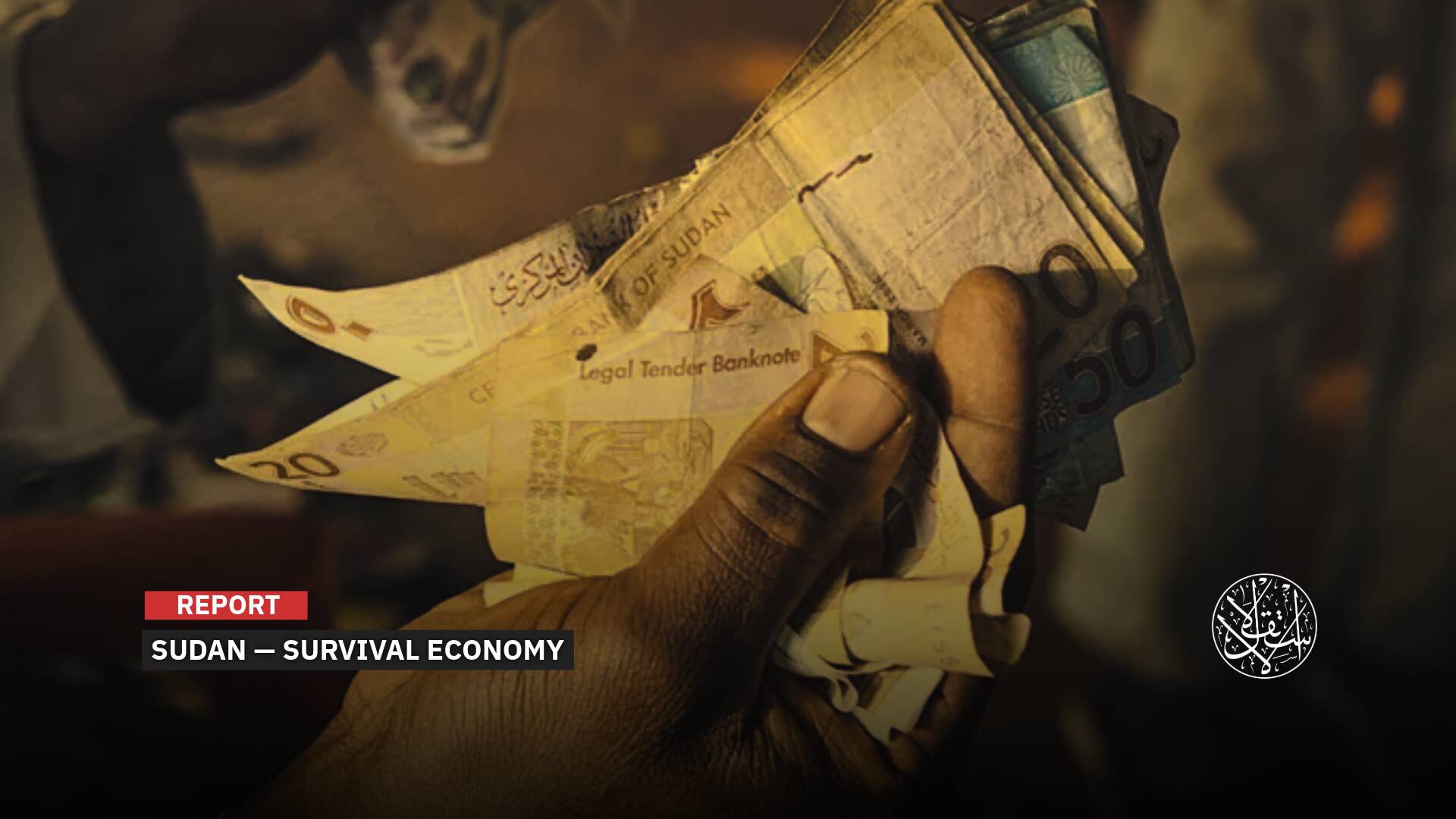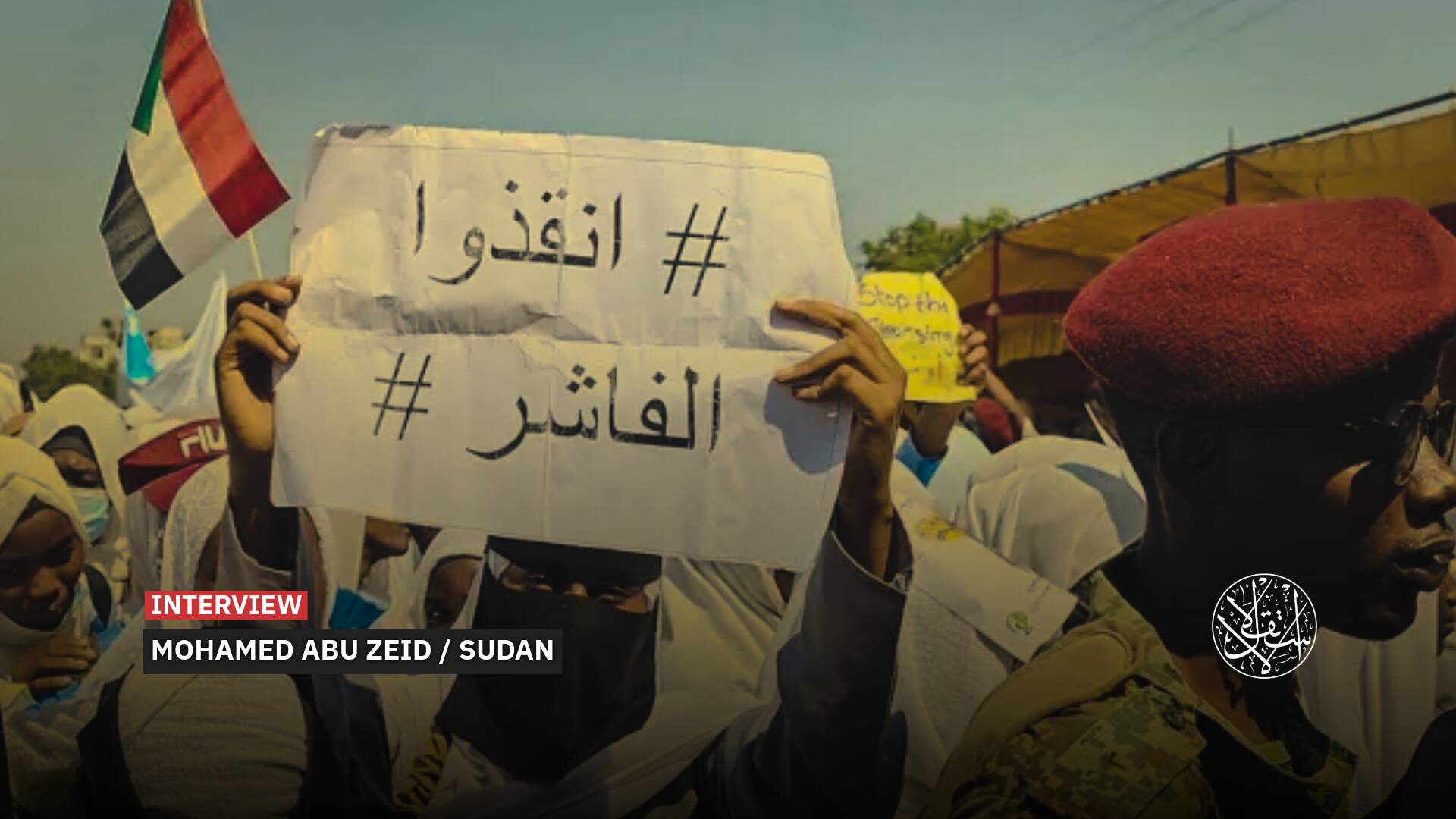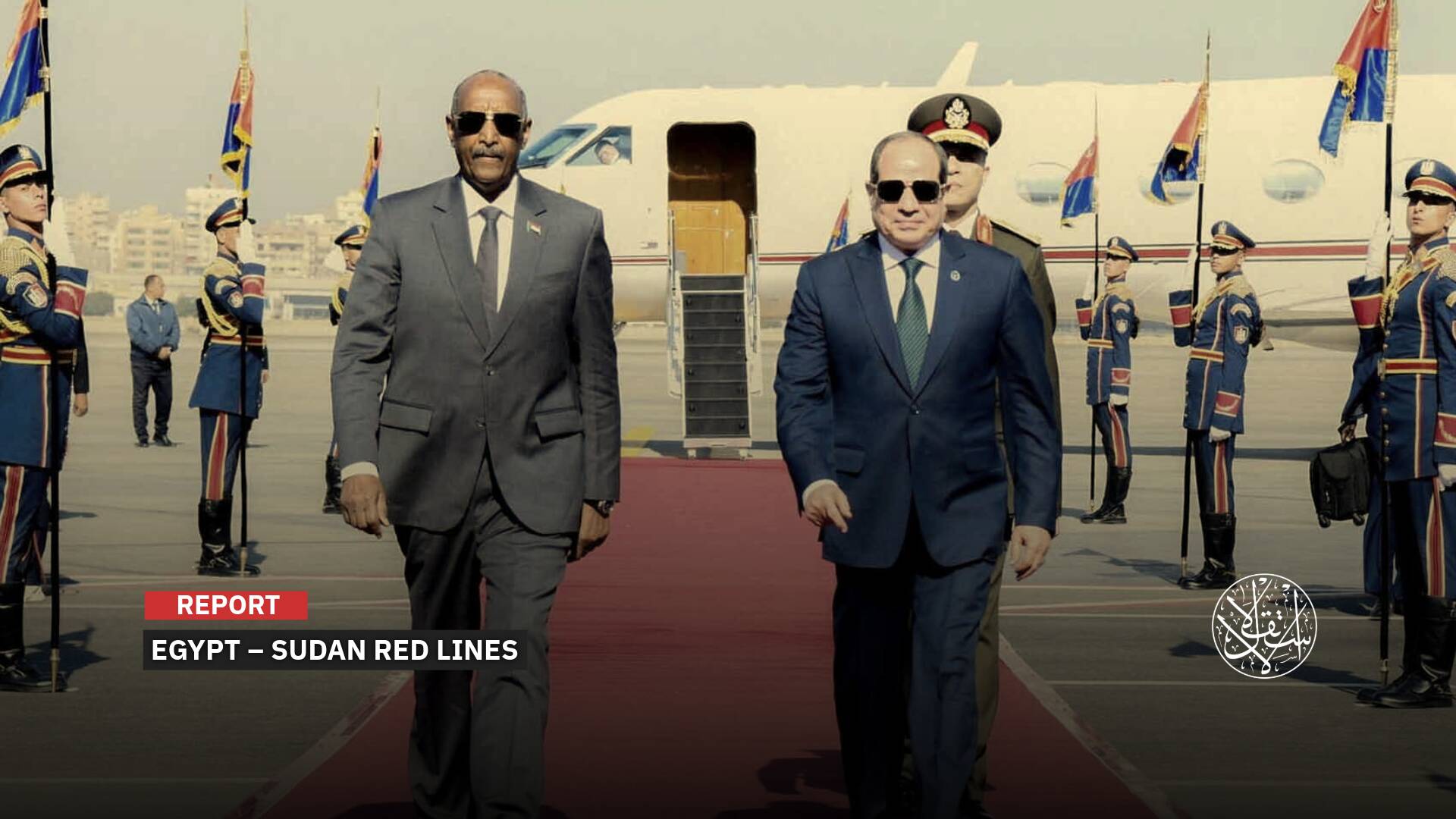Three Scenarios: Motives Behind Trump and Sisi’s Push for Gazan's Deportation

The U.S. and “Israel” are deliberately obstructing Gaza's reconstruction to deepen Palestinian despair.
Despite Egypt’s official rejection, Donald Trump continues to push for the displacement of Palestinians from Gaza, insisting that “Egypt will comply.”
On January 28, 2025, Egyptian media, citing a senior official, denied reports from U.S. outlets claiming that Trump and Abdel Fattah el-Sisi had agreed over the phone on resettling Palestinians from Gaza.
Amid these developments, Egyptian sources told Al-Estiklal there are three possible scenarios behind the rhetorical maneuvering and recent tensions between Trump and el-Sisi over this issue.

First Scenario
The first scenario suggests that Trump did, in fact, call el-Sisi—a claim denied by Egypt’s Foreign Ministry but not by the presidency—and asked him to host thousands of Palestinians under the pretext of rebuilding Gaza, with the possibility of their return or permanent resettlement afterward.
El-Sisi reportedly told Trump that he could not agree to such a plan due to the risk of mass public unrest in Egypt and the military’s opposition. Both sides then decided not to publicly acknowledge the call, avoiding an official statement from either the White House or the Egyptian presidency.
According to sources, this arrangement was meant to spare both leaders from embarrassment—Trump, who prides himself on getting his way, and el-Sisi, who could face backlash at home.
El-Sisi’s remarks later reinforced this. He stated that Egypt would not participate in the forced displacement of Gazans because “the people would take to the streets in protest.”
“The regime understands that any uncontrolled street demonstrations at this time could escalate into a full-scale uprising, similar to January 2011, given the public’s growing frustration over economic hardship and repression,” the sources noted.
During a press conference with Kenyan President William Ruto in Cairo on January 29, 2025, el-Sisi said: “If I asked the Egyptian people to do this [displace Palestinians], they would all take to the streets and say, ‘No, do not take part in this injustice.’” The statement was seen as a direct message to Trump.
El-Sisi also stressed that “allowing the displacement of Palestinians is unacceptable, as it threatens both Egypt’s and the Arab world’s national security,” implying that the Egyptian military had rejected Trump’s request and exerted pressure on el-Sisi to stand firm.
Second Scenario
According to the same sources, the second scenario suggests that Trump did relay something el-Sisi had told him—but not necessarily on January 26, 2025, the date Trump had announced for their conversation. Instead, the exchange may have taken place earlier or later, perhaps when el-Sisi congratulated him on his election victory in November 2024, or at another time.
Trump, however, framed his remarks as though the call had taken place on January 26, creating the impression that el-Sisi had conveyed his position on that specific day.
In response, Egypt's Foreign Ministry swiftly denied the claim, with a “high-level official source” telling the state-affiliated al-Qahera News Channel on January 28, 2025, that “no phone call took place between the Egyptian and American presidents.”
The sources pointed out that a careful review of Trump’s statements suggests he did not specify a date or time for the call or conversation. However, he claimed that el-Sisi “promised” to “host some Palestinians in Egypt as part of the efforts for peace in the region,” which is a rather vague statement.
Washington-based journalist Abdulrahman Youssef reinforced this, emphasizing that “both men told the truth, but both implicitly agreed to manipulate the wording to conceal the action.”
Youssef speculated that the call likely took place, but it would be difficult for Trump to lie diplomatically in such a situation. Thus, he resorted to a verbal maneuver after el-Sisi had sent unwelcoming signals regarding the call.
Youssef stated that Trump is not foolish enough to tell a major diplomatic lie regarding an ally country in such a volatile region as the Middle East. After all, Trump built his rhetoric on credibility and the ability to fulfill promises. Therefore, he avoided specifying a date for the call.
Youssef also suggested that Trump’s comments may have been based on a conversation with el-Sisi about the “Deal of the Century” during his previous term, either at the White House or the United Nations (2017-2021).
On his Facebook account, Youssef noted that “Trump and el-Sisi are known for political deception and for altering statements, more so than many other world leaders.”
Washington-based journalist Mohamed Elbedewy also pointed out the possibility of Trump lying about the timing of his conversation with Sisi, emphasizing that the White House does not release statements for every call Trump makes with foreign leaders.
This was indeed evident in the phone call he claimed to have had with Sisi, the authenticity of which remains unclear, as the White House did not release any statement about it, in contrast to the public disclosure of his call with King Abdullah II of Jordan regarding the displacement plan.
Elbedewy confirmed that Trump ignored releasing details of calls with foreign leaders during his first presidential term, as happened during his dinner meeting with Russian President Putin on July 7, 2017.
He also pointed out that The Washington Post reported Trump had been giving foreign leaders his personal phone number from the start of his presidency, leading to confusion among his aides about the timing of the calls.
Trump revealed to reporters aboard Air Force One that he had spoken with the head of the Egyptian regime about transferring some Palestinians from Gaza to Egypt. He stated that he hoped and believed that both Sisi and King Abdullah II of Jordan would agree to take in some Palestinians from Gaza.
“I wish [Sisi] would take some. We helped them a lot, and I’m sure he’d help us. He’s a friend of mine. He’s in [...] a rough neighborhood. But I think he would do it, and I think the king of Jordan would do it too,” Trump said.
Scenario Three
The Sources, close to Al-Estiklal, suggest a third scenario for the Trump-el-Sisi phone call, in which Trump’s statement about el-Sisi’s promise—regardless of the date—greatly embarrassed the Egyptian leader. Intelligence and military reports had reached him, showing that both the people and the army strongly rejected such a move.
As a result, the possibility of revealing the conversation or el-Sisi’s agreement to Trump’s request could provoke mass anger and possibly even revolution in the streets of Egypt. It could also lead to the military sacrificing el-Sisi should such a revelation occur.
Thus, the Egyptian Foreign Ministry, not the presidency, had to deny any phone call between el-Sisi and Trump, while not addressing Trump’s claims about el-Sisi’s approval of the deportation plan.
El-Sisi himself later denied accepting the deportation idea, but did not directly comment on whether he had spoken to Trump, likely to avoid escalating tensions and harming relations between the two countries.
In other words, the call likely occurred, away from Trump’s team, but disagreements arose over the issue of displacement, leading both sides to agree on keeping the matter under wraps.
On January 29, 2025, Yedioth Ahronoth reported, quoting high-ranking sources, that officials in both Jordan and Egypt warned that any agreement to “transfer” Palestinians could destabilize both countries and trigger widespread public outrage.
These sources emphasized that Trump’s ideas face significant resistance from Arab nations and Palestinians, who see it as an attempt at demographic change and ethnic cleansing.
Disruption of Reconstruction
The Egyptian sources have confirmed that Trump and el-Sisi agree on the general goals of resolving the Gaza and Palestinian issue through displacement. Trump is focusing on a definitive solution: the removal of Palestinians as part of the “Deal of the Century,” a plan el-Sisi had previously pledged to support during his first presidential term, in which Palestinians would be relocated to Egypt, Jordan, or other Muslim-majority countries.
On the other hand, el-Sisi’s goal—which Trump agrees with—is to weaken Palestinian armed resistance and prevent Hamas from ruling Gaza, due to the “ideological ties between Hamas and the Muslim Brotherhood.”
Israeli and American media outlets have started discussing “alternative methods” for carrying out the displacement, including forcing Palestinians into “voluntary migration” by making life in Gaza unbearable.
By stalling the rebuilding process, Gaza could become uninhabitable, as “Israel” controls the borders and the entry of aid. Both the Israeli Occupation and the U.S. are exploiting this delay to push their agenda: displacement.
This strategy is part of broader political and economic pressure tactics, aiming to create an unstable living environment that will push Palestinians to feel it is futile to stay in the Strip.
“Israel” has already turned large areas of Gaza unfit for habitation, but “the job” is not complete yet. “Israel” plans to continue “this effort” with Trump, complicating and delaying Gaza’s reconstruction.
Israeli estimates suggest that the U.S. and “Israel” could deliberately obstruct Gaza’s rebuilding efforts to pressure Palestinians into accepting displacement or resettlement, using various methods such as restricting access to building materials and humanitarian aid.
Still, the U.S. could use its influence over international donors—many of whom are Arab countries—to reduce or even halt funding for reconstruction projects, turning them into political tools.
“Israel” could also disrupt reconstruction by restarting the war and destroying what has been rebuilt, thus deepening the sense of frustration and despair among Palestinians.

U.S. envoy to the Middle East, Steve Witkoff, promised Israeli Prime Minister Benjamin Netanyahu to delay and disrupt the reconstruction efforts in northern Gaza to encourage the migration initiative for Gaza’s residents, as per The Guardian.
Witkoff, during his recent meeting with Netanyahu prior to the Gaza ceasefire, pledged to obstruct the rebuilding process in northern Gaza and delay the entry of “caravans” (temporary homes) into the region until an agreement was reached on security plans that would ensure the safety of Israeli settlements near Gaza.
Agence France-Presse (AFP) on January 29, 2025, quoted sources from Hamas confirming that “Israel” is intentionally delaying the delivery of aid to Gaza, which could potentially affect the release of hostages.
“We warn that continued delays and failure to address these points [delivery of key aid] will affect the natural progression of the agreement, including the prisoner exchange,” a senior Hamas official told AFP, speaking on condition of anonymity.
On January 29, 2025, Witkoff discussed with Israeli officials plans to relocate Palestinians from Gaza; Those officials observed “serious American intent,” noting that the matter went beyond mere public statements and included practical discussions on options to relocate 1.5 million Palestinians from Gaza, as Trump had mentioned, according to Israeli Channel 13.
However, the “Deal of the Century” and the displacement plans face significant obstacles, such as the Palestinian people's strong attachment to their land, the ongoing strength of Resistance against the Israeli occupation, and the growing international and popular support for the Palestinian cause, especially following Operation al-Aqsa Flood.
A United Nations study, conducted in late 2024, indicated that Gaza would need several decades to rebuild its economy and infrastructure. 62% of Gaza’s residential buildings, 88% of schools, and 21 of 36 hospitals were destroyed by “Israel,” with more than 59% of the infrastructure damaged.
Bloomberg estimated in August 2024 that the cost of rebuilding Gaza could reach around $80 billion.
Sources
- World shocked as Trump insists on idea of forced Palestinian relocation from Gaza
- Trump repeats suggestion Palestinians should leave Gaza for Egypt and Jordan
- Report: Trump envoy told Netanyahu US will delay rebuilding north Gaza until buffer zone is secured
- Hamas Officials Say Israel Delaying Aid Delivery To Gaza, May Affect Hostages' Release
- Gaza economic recovery could take decades: UN report
- Rebuilding Gaza Could Take Over $80 Billion, Global Cooperation
- “What should I say to the Egyptian public opinion?!” [Arabic]


